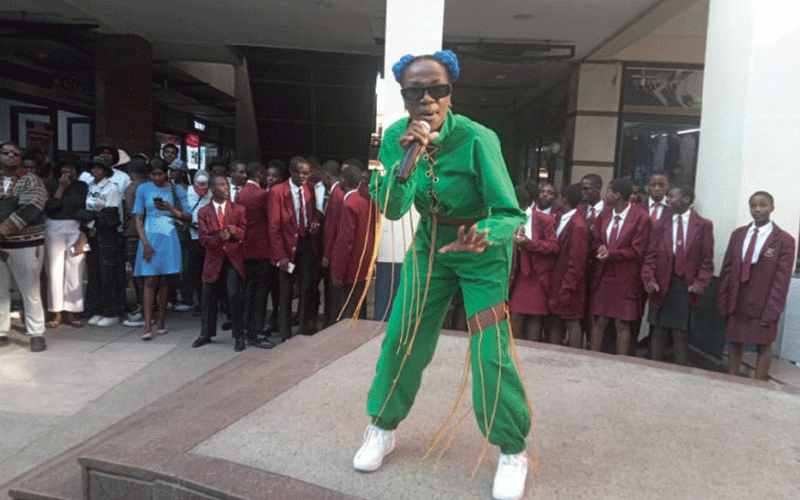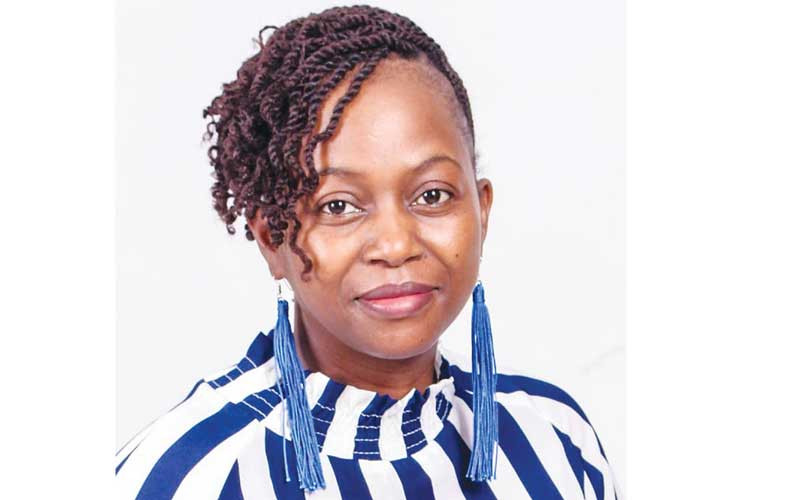
FROM being an admirer of Nicki Minaj and globally-acclaimed male rappers like Doja Cats, Azealia Banks’, Cardi Bs and Rhapsodys, among others, Zimbabwe’s female prolific rapper Lissa Nontulu Sibanda aka Nontulu J has overcome the gender-based challenges faced in the music industry.
Instead, she believes there has to be equal opportunities availed for boys, girls, women and men as the theme for European Film Festival suggests. The Bulawayo European Film Festival ran from October 18 to 20.
On the festival’s opening day, Noluntu J brought business to a halt as she put up an uplifting performance at the business complex which houses Ster Kinekor in Bulawayo to an audience that had watched the Filamu African and European Short Films. She had only half-an-hour to toast out Kasi Barbie, Moko, Winning, Ghost, Uzozisola and Ndlukulu with the backing of Founders College students.
“It feels good to perform at the Bulawayo European Film Festival. I started my professional musical career at the age of 12 through singing along the music of my idols and since 2017 I never looked back. I encourage fellow youth female rappers to keep pushing and moving,” she said while coming off the stage.
As a result of such mesmerising performances, Nontulu J was nominated for the Best Alternative and Best Hip-hop artist awards at the Bulawayo Arts Awards (BAA) including the Best Africa Act from the SA Hip Hop Music Blog.
During a recent interview with Alex Gwaze, the European Film Festival curator and the Input session co-ordinator, Noluntu J said: “Yes I was raised by my grandma. But, honestly I didn’t really exactly tell her I wanted to be a rapper. It kinda started as a hobby with a friend. She would hear me rap here and there, but at that time she didn’t really take me seriously. Not until she heard me on the radio. And when she did she was so proud. She’s so proud of me. She goes around telling everyone that her granddaughter is a musician. And every time a visitor comes through, she starts showing them my music videos.
“All our languages are important to me. That’s how I can find a way to make my audience relate and connect more to me personally — to my music and my sound, our life. It’s really about how much you value your audience. Using local languages is like investing in our culture, in our people #winning. When I use Shona or Ndebele they know I am speaking to them and only them,” she said.
Inside the Ster Kinekor, the audience was captivated as testified by their response. One of them Noma Molife a PhD candidate at the University of Wits in South Africa where she is studying Sociology labelled the films screened at the European Film Festival as masterpieces and exciting as they all carried impactful perspectives on women and the film Trained to See showed that war is not a place for women.
- A peep into Matenganyika’s artistic closets
- The Bioskop Short Film Competition is back
- The Bioskop Short Film Competition is back
- Biskop Short Film 2022 finalists announced
Keep Reading
“War is not a place for women and children and they must all be taken out of this. The female journalists had courage and were all kicked out of their credentials for journalism and the houses that they lived in.
“Just having the tenacity will keep your legacy alive. You may be buried but your stories remain alive. One day someone will reflect on them.
“We live in an exciting time when almost every cellphone has a camera. People’s expertise can be archived and access to these materials should be democratised. When more people take videos and pictures the more accessible reliable and trustworthy information is,” Molife said.
Top blogger and podcaster Chipo Kay said that the narrative, Trained to See, portrays the truth that journalists face while carrying out their duties. Kay rates good photography as the best way to preserve and keep memories for sharing in the future.
“Photography is not that easy and it takes a lot of courage and commitment to do a perfect piece of work,” she said.
Trained to See is centred on Margaret Bourke-White, Martha Gellhorn and Lee Miller, three journalists who made history as the first female correspondents to report on the Second World War. At the end of World War II, for the first time in history, women journalists are allowed to report directly from the front. The three journalists provided very reliable and trustworthy information on bombed-out cities like Cologne, Leipzig or Munich.
“They witness the liberation of the Ravensbruck, Buchenwald and Dachau concentration camps. Committed to the cause for which their country has entered the war, they shape the still young genre of photojournalism with personal reports and photographs. Their style added a personal touch to war reporting. It is through their eyes that we see defeated and liberated Germany. For the first time in history war reporting has a ‘female subtext’ which forever changes our perception of war as the ‘father of all things’. Trained To See — Three Women and The War is the first documentary about this phenomenon: war from a new perspective,” reads a widely circulated internet statement.







